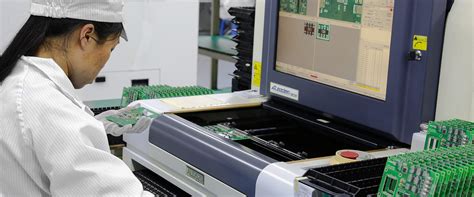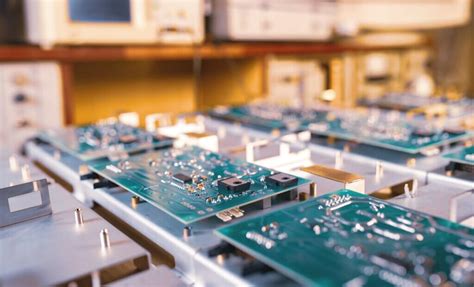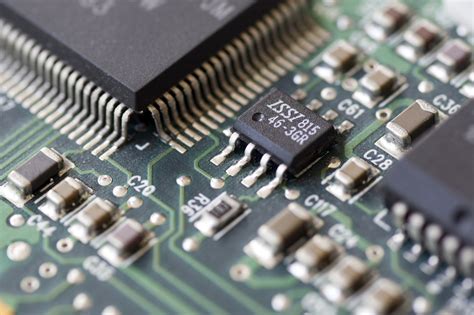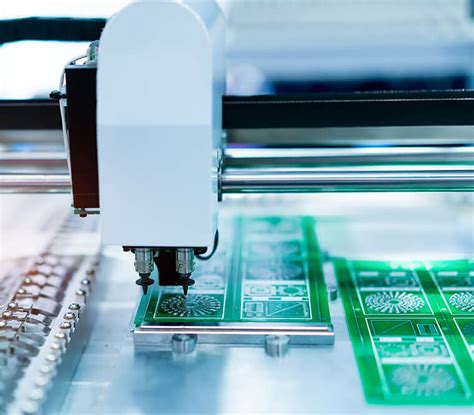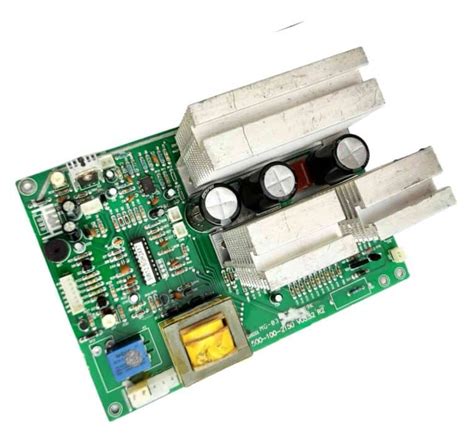Maximizing Efficiency with PCB Assembly Services from Top Manufacturers

Key Takeaways
Partnering with leading PCB assembly services manufacturers can significantly enhance your production processes. The integration of innovative technologies in the pcba domain streamlines workflows and minimizes errors, resulting in greater efficiency and product quality. For instance, automated assembly lines can reduce labor costs and improve precision, while advanced inspection technologies ensure that each board meets stringent quality standards. Utilizing a strategic approach that incorporates lean manufacturing principles can further optimize your PCB assembly process, allowing you to allocate resources more effectively and reduce waste.
In today’s competitive market, selecting the right manufacturers based on their technological capabilities and adherence to quality standards is critical. Here’s a quick overview of what to consider when evaluating potential partners:
| Criteria | Importance |
|---|---|
| Technological Expertise | Essential for implementing innovative solutions |
| Quality Assurance Processes | Critical for maintaining product standards |
| Cost Efficiency | Vital for budget management |
| Turnaround Time | Important for meeting project deadlines |
In conclusion, harnessing the strengths of top PCB assembly manufacturers not only improves operational efficiency but also delivers superior products to the market. Such collaborations are key to thriving in the ever-evolving electronics industry.

Introduction to PCB Assembly Services: Understanding the Basics
In today’s fast-paced technological landscape, PCB assembly (Printed Circuit Board assembly) plays a crucial role in the manufacturing of electronic devices. Understanding the basics of this process is vital for businesses looking to optimize their production capabilities. PCB assembly involves several steps, including component sourcing, placement, soldering, and inspection. By collaborating with top manufacturers, companies can leverage advanced techniques and methodologies to enhance their pcba (PCB assembly) efficiency. This collaborative approach not only streamlines operations but also allows manufacturers to stay ahead in a competitive market. Moreover, engaging with experienced pcb assembly services ensures that businesses can benefit from tailored solutions that meet their specific project requirements, ultimately leading to improved product quality and reduced time-to-market. As industries continue to evolve, mastering these foundational aspects of PCB assembly becomes increasingly essential for achieving sustained success in electronic manufacturing.

Key Benefits of Partnering with Top PCB Assembly Manufacturers
When businesses decide to collaborate with leading PCB assembly manufacturers, they unlock a host of advantages that can significantly elevate their production capabilities. First and foremost, partnering with reputable suppliers enhances production efficiency. These manufacturers often utilize cutting-edge technologies to streamline their processes, allowing for quicker turnaround times and a reduction in assembly errors. Improved accuracy in PCBA (Printed Circuit Board Assembly) is another critical benefit, as experienced manufacturers implement rigorous quality control measures to ensure each product meets the highest standards.
Furthermore, access to superior materials and expert knowledge is invaluable. Top manufacturers bring years of industry experience, enabling them to advise on design optimizations that enhance functionality and manufacturability. This collaboration often results in innovative solutions that not only meet but exceed market demands.
In addition, cost-effectiveness is a pivotal factor; while initial costs might seem higher when choosing premium PCB assembly services, the long-term savings gained from lower defect rates and faster production processes typically outweigh these investments.
“Choosing the right partner can be a game-changer for businesses looking to improve efficiency in their manufacturing processes.”
By leveraging the strengths of leading PCB assembly manufacturers, companies can focus on what they do best while simultaneously optimizing their entire assembly process. Ultimately, this partnership fosters an environment where both parties can thrive in the competitive landscape of electronic manufacturing.
Innovative Technologies Transforming PCB Assembly Efficiency
The landscape of PCB assembly is rapidly evolving, largely due to the integration of innovative technologies that significantly enhance efficiency. Automation plays a pivotal role in streamlining production processes, allowing manufacturers to achieve higher throughput rates while minimizing errors. Advanced robotics and automated inspection systems are increasingly employed in PCBA, where they can quickly and accurately verify soldering quality and component placement. Additionally, the adoption of AI-driven analytics provides manufacturers with valuable insights into their production lines, enabling them to predict equipment failures and optimize maintenance schedules proactively. The use of 3D printing technology is also transforming the prototype development process for PCB assembly, reducing lead times for new designs and allowing for rapid iterations before mass production. By leveraging these state-of-the-art solutions, leading PCB assembly services manufacturers can not only improve operational efficiency but also deliver superior quality products that meet the increasing demands of their clients in various industries. This commitment to harnessing cutting-edge technologies is vital for remaining competitive in a market where speed and precision are paramount.
Strategic Approaches to Streamlining Your PCB Assembly Process
Streamlining your PCB assembly process is essential for optimizing production efficiency and achieving high-quality outcomes. One strategic approach is to implement lean manufacturing principles, which focus on reducing waste and improving workflow. This can be achieved by analyzing each stage of the PCBA process, identifying bottlenecks, and reorganizing workstations for better operational flow. Additionally, employing automation technologies can significantly enhance the speed and accuracy of PCB assembly. Automated pick-and-place machines, for instance, ensure that components are precisely placed on the board without human error. Furthermore, embracing advanced software solutions for inventory management allows manufacturers to track components in real-time, reducing delays caused by stock shortages. Integrating such innovative approaches not only boosts efficiency but also ensures that manufacturers can maintain a competitive edge in an evolving market. By focusing on these strategic methods and continually assessing performance metrics, companies can adapt their pcba processes to meet changing demands while maintaining exceptional quality standards.
Quality Control Measures in PCB Assembly: Ensuring Superior Results
In the realm of PCB assembly, implementing robust quality control measures is paramount for achieving superior results. Manufacturers of PCBA often utilize a variety of strategies to ensure that their assemblies meet high standards. Continuous monitoring throughout the production process aids in identifying potential defects early, which can prevent costly rework or redesigns later. Techniques such as Automated Optical Inspection (AOI) and X-ray inspection are increasingly adopted, enabling manufacturers to detect inconsistencies in the soldering process or verify conformations to design specifications. Additionally, real-time data analytics provide insights into production trends and highlight areas for improvement, fostering a culture of continuous enhancement. By investing in thorough training for personnel and developing standardized processes, leading PCB assembly services manufacturers can not only enhance the quality of their products but also ensure that every component is accountable for its performance within the final assembly. Integrating these quality control measures is essential for establishing trust with clients and ultimately contributes to sustained market competitiveness in the fast-evolving electronics landscape.
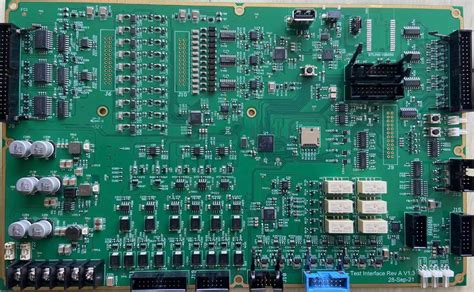
Cost-Effective Solutions: Balancing Quality and Budget in PCB Assembly
In today’s competitive landscape, achieving cost-effective solutions in PCB assembly is crucial for manufacturers aiming to maintain profit margins without compromising quality. Leading PCB assembly services focus on optimizing every aspect of the production process to create high-quality PCBA (Printed Circuit Board Assembly) while ensuring that costs remain manageable. One strategy involves utilizing advanced automation and innovative technologies that reduce labor costs and enhance production speed. This allows manufacturers to produce PCBA more efficiently, minimizing waste, which in turn lowers overall expenses.
Moreover, partnering with reputable PCB assembly manufacturers can significantly reduce procurement costs by leveraging their established supply chains for components and materials. By negotiating bulk purchase agreements, these manufacturers can ensure a consistent quality of raw materials that does not exceed budget constraints. Additionally, maintaining stringent quality control measures is essential; this not only ensures that the final product meets industry standards but also prevents costly rework or returns due to defects.
Ultimately, the key lies in striking a balance between achieving high standards in production while managing costs effectively. By emphasizing both efficiency and quality in the PCB assembly process, manufacturers can enjoy enhanced profits without sacrificing performance or reliability. With careful planning and strategic partnerships, companies can navigate the complexities of budget management while still delivering outstanding results in their PCB assembly operations.
Case Studies: Success Stories from Leading PCB Assembly Manufacturers
In the realm of PCB assembly, numerous companies have showcased remarkable transformations through innovative partnerships with top PCBA manufacturers. One compelling case is that of a tech startup that sought to enhance the reliability of its embedded systems. By collaborating with an industry leader known for its advanced PCB assembly technologies, they achieved a significant reduction in assembly errors, leading to improved product performance and customer satisfaction. Another notable success story involves an automotive manufacturer that integrated a just-in-time production strategy with a specialized pcba service provider. This collaboration not only optimized their supply chain but also reduced lead times dramatically, allowing for faster time-to-market without compromising on quality.
Additionally, a medical device manufacturer highlighted how strategic engagement with top PCB assembly manufacturers resulted in better compliance with regulatory standards, thanks to rigorous quality control measures implemented during the PCBA process. This commitment to excellence ensured that their products met the necessary certifications while also driving down production costs through efficient resource management. These examples illustrate that partnering with leading PCB assembly services manufacturers can yield exceptional benefits, including enhanced efficiency, superior quality, and ultimately, more successful product launches in competitive markets.
Future Trends in PCB Assembly Services and Their Impact on Production
As the electronics industry continues to evolve, the pcb assembly landscape is witnessing significant transformations driven by emerging technologies and innovative practices. One notable trend is the increasing integration of automation in the pcba process, which enhances precision and reduces assembly times. Automation not only minimizes human error but also streamlines workflows, allowing manufacturers to scale production efficiently while maintaining consistent quality. Furthermore, advancements in materials science are leading to the development of more sustainable and cost-effective materials for pcb assembly, which can impact environmental sustainability positively while ensuring high performance.
Another key trend is the adoption of Internet of Things (IoT) technologies within pcb assembly facilities. By employing IoT systems, manufacturers can monitor equipment performance in real time, allowing for proactive maintenance that prevents costly downtimes. This data-driven approach enhances overall production efficiency and optimizes resource allocation.
Additionally, customization has gained traction as consumer demand for personalized electronics surges. Leading pcb assembly services manufacturers are increasingly focusing on offering tailored solutions that cater to specific customer needs without compromising on efficiency or cost-effectiveness. This shift not only fosters stronger customer relationships but also enables companies to stay competitive in a rapidly changing market.
Overall, these trends signify a move towards more intelligent and adaptable production processes within pcba services. As these innovations unfold, their widespread adoption is set to further enhance operational efficiency and reshape the future of electronics manufacturing.
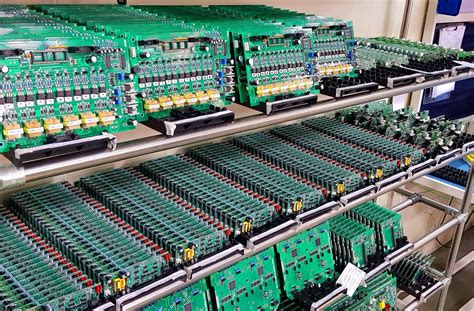
Conclusion
In the rapidly evolving landscape of electronics manufacturing, the role of PCB assembly services is increasingly pivotal. By collaborating with top manufacturers specializing in pcba, businesses can unlock significant improvements in both efficiency and productivity. Leveraging the latest advancements in manufacturing technologies, these industry leaders implement innovative strategies that streamline assembly processes, thereby reducing lead times and enhancing overall quality. With their expertise, manufacturers adopt rigorous quality control measures that ensure each pcba meets stringent industry standards, minimizing defects and rework. Furthermore, by focusing on cost-effective solutions, they enable companies to balance high-quality outputs with budgetary constraints. As a result, engaging with reputable pcb assembly services not only translates to superior results but also positions businesses to adapt to future trends in production and technology seamlessly. This forward-thinking approach is essential for staying competitive in a demanding market environment.

FAQs
What is PCB assembly?
PCB assembly, commonly referred to as PCBA, is the process of connecting electronic components to a printed circuit board (PCB) to create a functional electronic device. This process involves both manual and automated methods for placing components accurately on the board.
What are the key benefits of using PCB assembly services from top manufacturers?
Partnering with leading PCB assembly services manufacturers offers several advantages, including enhanced production efficiency, access to innovative technologies, improved quality control standards, and cost-effective solutions that can meet budgetary constraints while maintaining product quality.
How can I ensure quality in my PCB assembly process?
Quality control in PCB assembly is achieved through rigorous testing protocols, inspections during various stages of production, and adherence to industry standards. Implementing these measures helps guarantee that the final product meets specifications and performs reliably.
What innovative technologies are currently transforming PCB assembly efficiency?
Leading manufacturers utilize cutting-edge technologies such as automation systems, advanced software for design and layout optimization, and placement robots that enhance accuracy and speed in the PCBA process. These innovations contribute significantly to overall efficiency.
Can I customize my PCB assembly services?
Yes, many top PCB assembly manufacturers offer customizable solutions tailored to specific project requirements. This flexibility enables businesses to address unique needs while optimizing their manufacturing processes.
For more details on maximizing your PCB assembly, please click here: PCBA Services.

